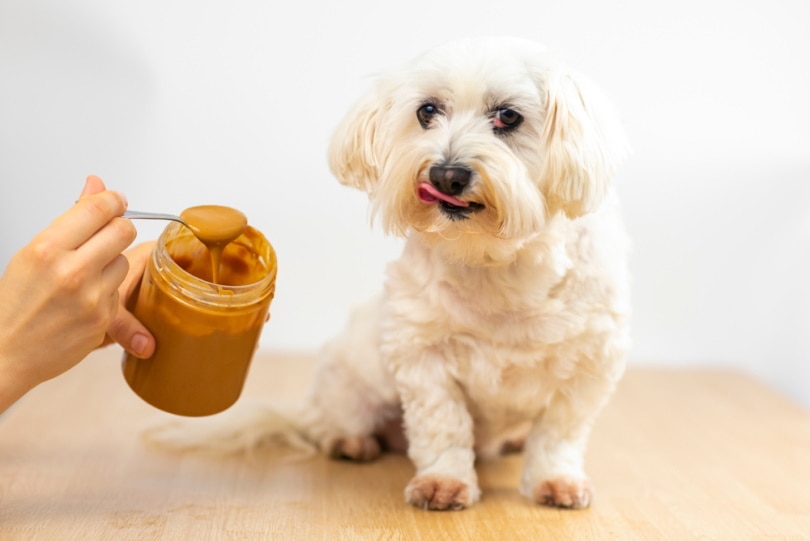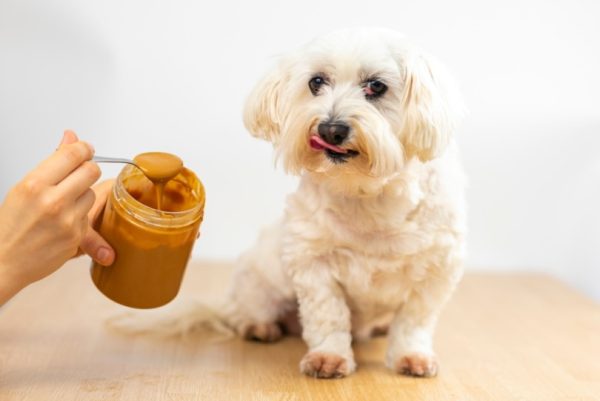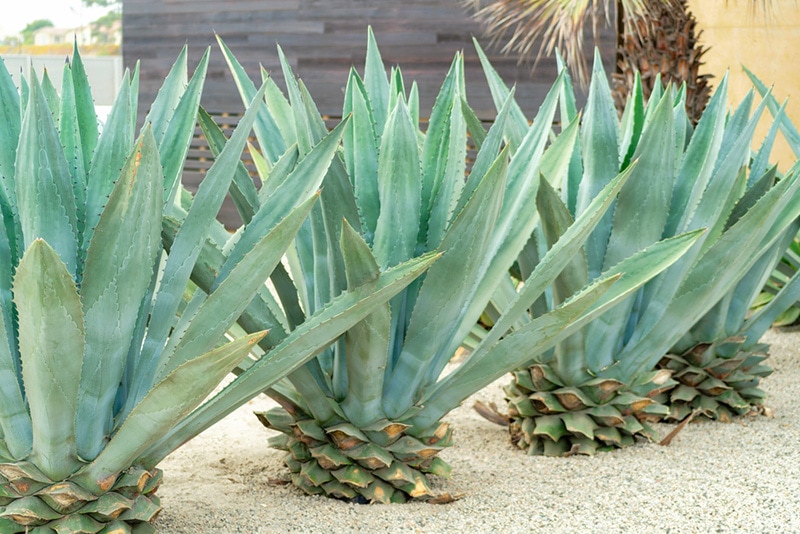A big spoonful of peanut butter is delicious and comforting and certainly a much-loved treat for dogs. But unfortunately for pancreatitis patients, it is high in fat and can put a grumpy pancreas into a full-blown temper tantrum. For dogs that have historically suffered or continue to suffer from pancreatitis, peanut butter and other fatty foods should be avoided.
What Is Pancreatitis?
“Itis” stands for inflammation, so the word pancreatitis literally means inflammation of the pancreas, which is an organ that sits on the right side of the abdomen, next to the stomach. Its function is to provide digestive enzymes to help break down food, and it is also the factory production site for hormones like insulin. When it becomes inflamed, the digestive enzymes are activated before they have a chance to reach the small intestine, so they start to digest the organ that made them: the pancreas itself.
Pancreatitis is common in dogs, and there are no predictive factors in age or sex that can offer any insight into the likelihood of your dog getting pancreatitis at some point in their life. Certain studies have demonstrated that there is a hereditary risk,1 though, and specific breeds have more of a predilection for developing it, such as the Cocker Spaniel, Miniature Schnauzer, Poodle, Yorkshire Terrier, and Dachshund.
It appears to occur suddenly, sometimes prompted by a fatty meal or dietary indiscretion (a fancy term for a dog eating something that they shouldn’t have) or after the use of corticosteroids for another condition. However, there is often no explanation.
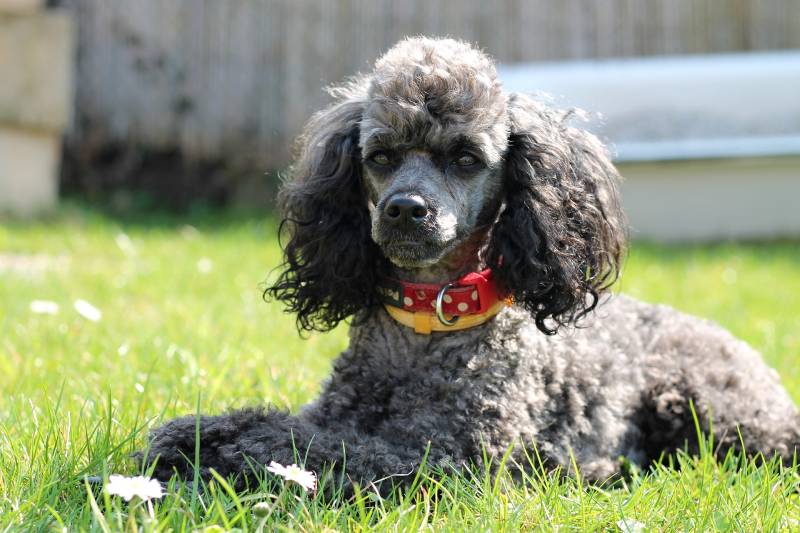
What Are the Signs of Pancreatitis?
Signs occur suddenly and usually involve vomiting, inappetence, a hunched and painful abdomen, lethargy, fever, and diarrhea. The classic sign of pancreatitis is a dog adopting the praying position to relieve discomfort in the abdomen, where their head and neck are lowered to the floor, with their rear end sticking up in the air. If you press your hands gently over their stomach, the top part of the abdomen just below the ribcage often feels hard and firm. This is called abdominal “guarding” and is often observed when a dog is experiencing pain.
In mild cases, the signs can be significantly more subtle and may include only a poor appetite and fatigue.
How Do I Care for My Dog With Pancreatitis?
If you suspect that your dog is suffering from pancreatitis, you must seek veterinary attention. A severe bout of pancreatitis can cause a patient to go into shock and has the potential to be fatal, so getting early treatment is essential. Veterinarians take pancreatitis seriously, as they have likely experienced patients that have deteriorated rapidly, sometimes unexpectedly.
Treatment is basically aimed at supporting the body through the flare-up and involves fluid therapy to keep the body hydrated, anti-sickness medication, and pain relief, as well as introducing low-fat nutrition as soon as possible. It was once recommended to “rest the pancreas” when patients suffered from pancreatitis, but this is being challenged. In fact, studies now show that instigating early nutrition improved overall outcomes and helped the patient’s appetite. Therefore, feeding tubes are placed in some patients to deliver nutritional requirements.
Once dogs are eating well, they can be sent home from the hospital. Long-term management of pancreatitis often involves a permanent lifestyle change for your dog concerning their diet. To prevent repeat flare-ups, it may be necessary for you to keep your dog on a low-fat diet for the long term.
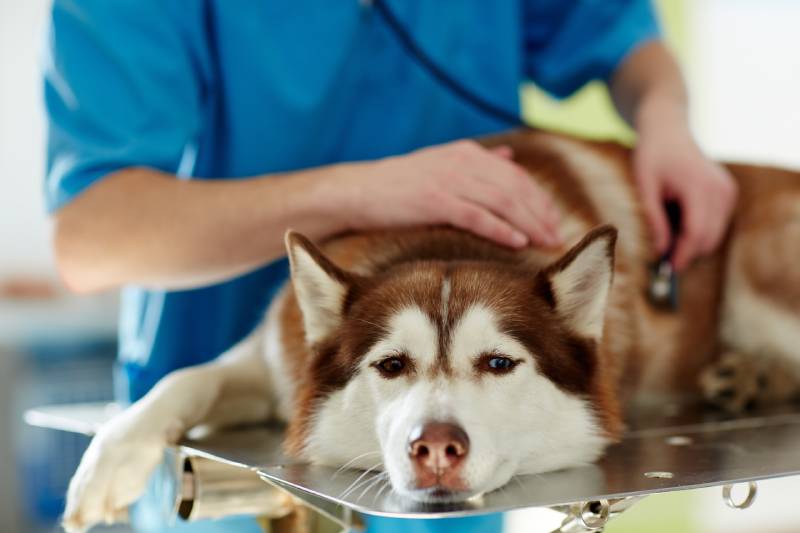
What Can I Feed My Dog With Pancreatitis?
There are several specially formulated diets for pancreatitis to make it easier for you to provide your dog with a balanced diet of low-fat food. It is best to talk to your veterinarian about the options available, as each brand has a different fat content, and every patient has different requirements.
If your dog has repeated bouts of pancreatitis, you must keep them on a strict diet. Consuming high-fat foods like peanut butter is a major risk factor for the development of pancreatitis, and the long-term prognosis is better if these foods are avoided. It is theorized that repeated bouts of pancreatitis may be the cause of the onset of “chronic” pancreatitis, which causes permanent changes to the pancreatic tissue. There is also a correlation between other inflammatory diseases in the abdomen and the development of chronic pancreatitis. These include inflammatory bowel disease, liver disease, and diabetes. While we still don’t know the exact specifics of the correlations, it is notable and worth avoiding altogether by having your dog consume a strict diet where possible.
What Treats Can I Give My Dog With Pancreatitis?
Just because your dog must be on a low-fat diet doesn’t mean their life has to be treat free! Lean sources of meat are excellent substitutes for processed packaged treats that are often high in sugars and fats. You can even give them a dollop of dog-friendly peanut butter.
Do note that you cannot give dogs human peanut butter that contains the sweetener xylitol, as this is highly toxic to dogs. Please check the packaging of your peanut butter jar at home before giving any to your dog. To be safe, even if your dog has no history of pancreatitis, stick to peanut butter made specifically for dogs.
Cooked chicken, turkey, and fish are good options for protein treats. Some dogs are even partial to vegetables, including raw carrots and sweet potatoes, which have the added benefit of increasing your dog’s fiber intake.
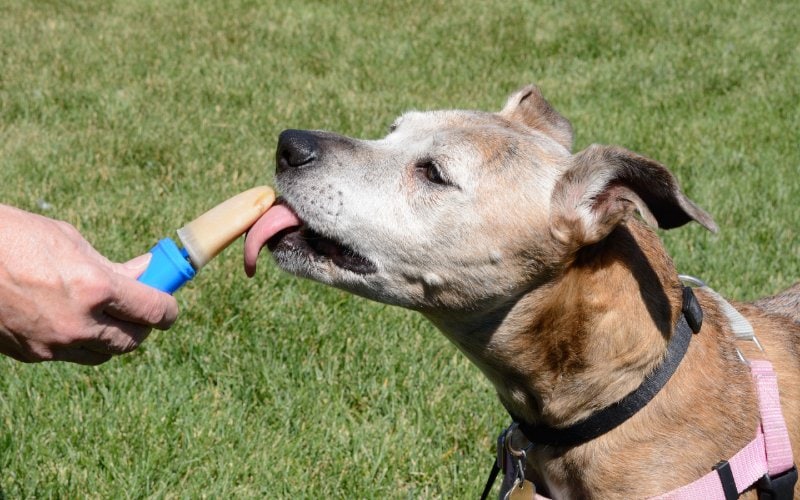
Conclusion
Pancreatitis can be a miserable illness for your dog. Mild cases with appropriate treatment and management carry a relatively good prognosis. Severe cases are often more guarded due to other complications within the body. Unfortunately, there is no conclusive cure for pancreatitis, so long-term management is centered around feeding the dog a low-fat diet and monitoring them for any early signs of a pancreatitis flare-up.
Featured Image Credit: Josfor, Shutterstock

